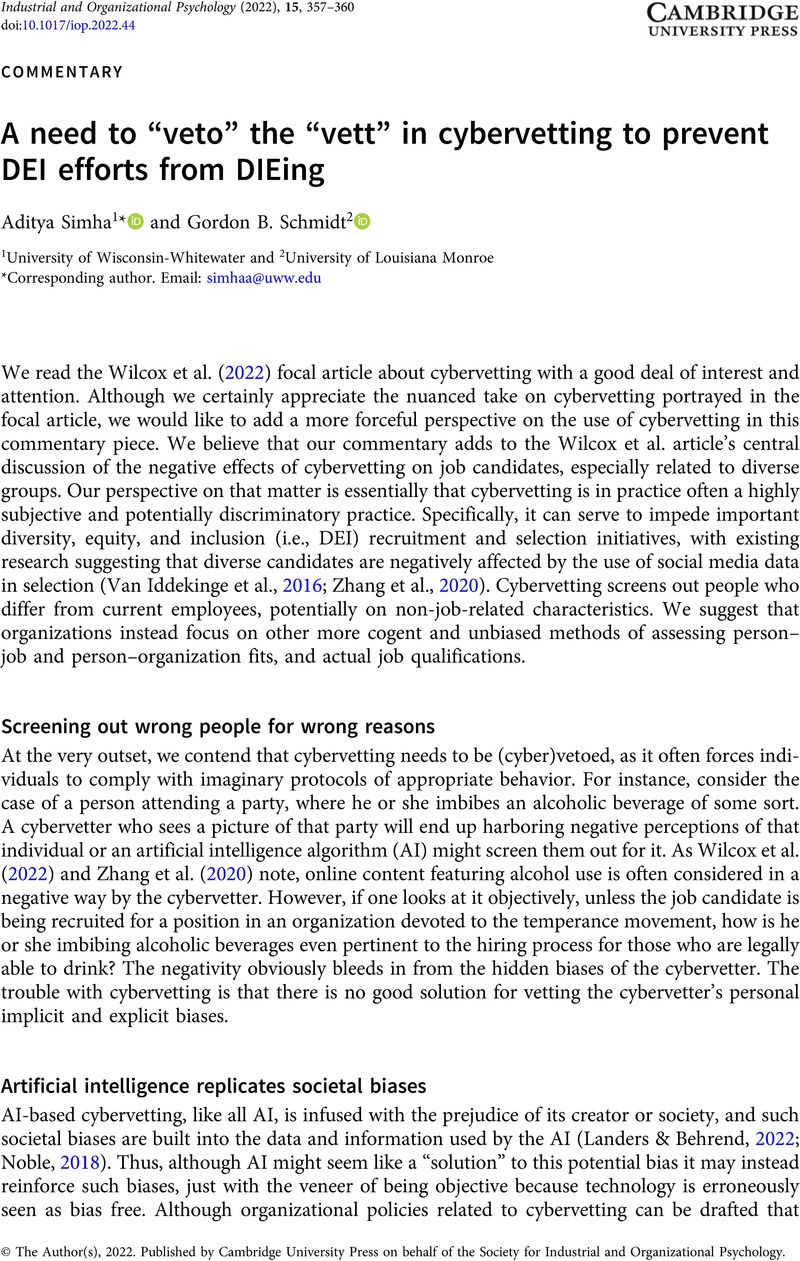Landers, R. N., &
Behrend, T. S. (
2022, February 14). Auditing the AI auditors: Aframework for evaluating fairness and bias in high stakes AI predictive models.
American Psychologist. Advance online publication.
http://doi.org/10.1037/amp0000972
CrossRefGoogle Scholar 